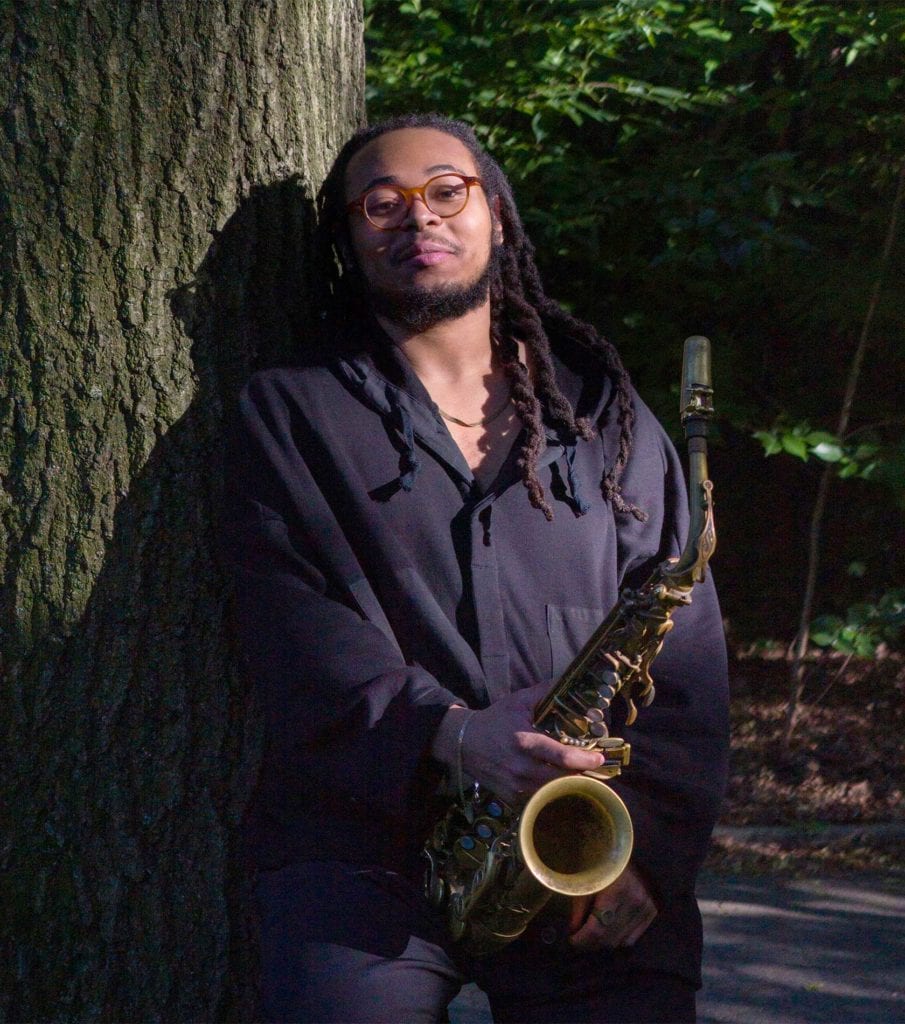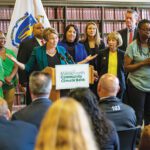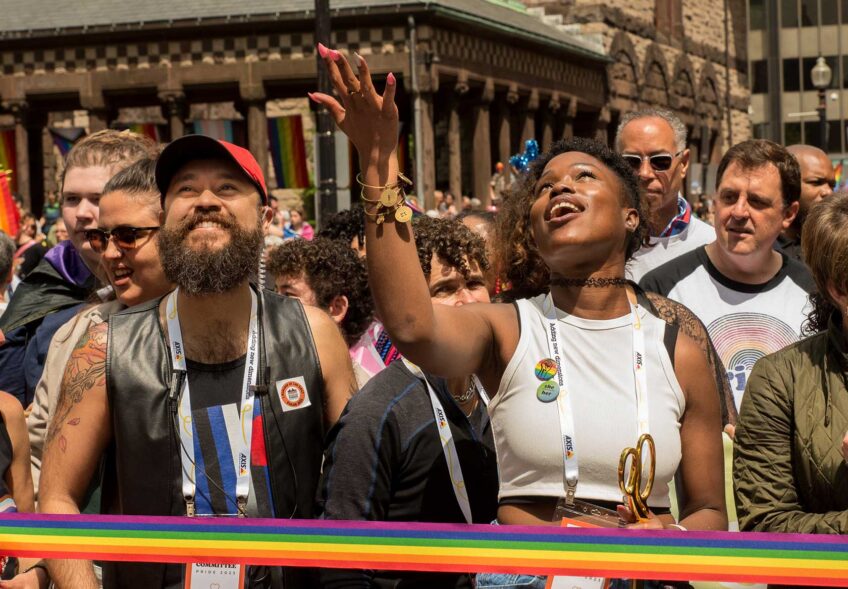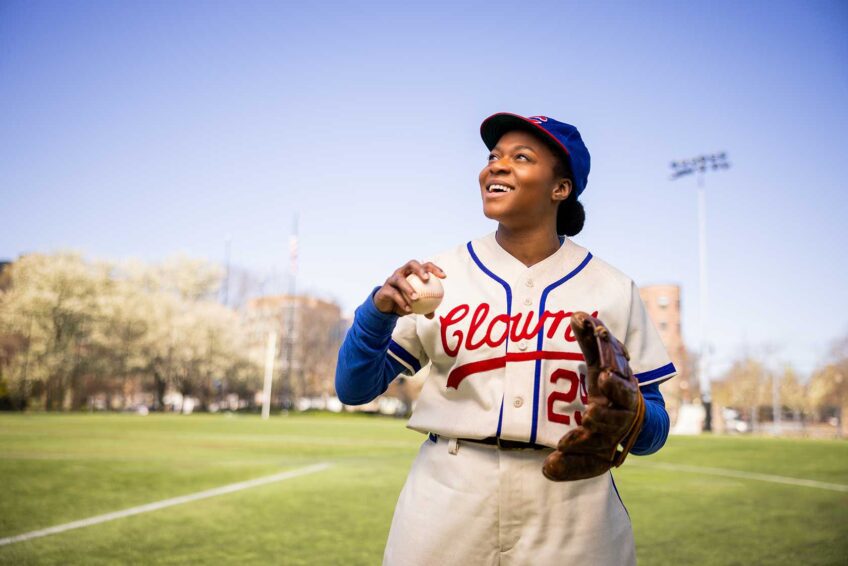
Who is Immanuel Wilkins? Imagine being just 23 and at the top of your game with the jazz world agog at your skills as a composer, bandleader and musician, and you’ll have an idea who this young man is and what he’s doing. “Omega,” his first CD, was released on Aug. 7, and its songs reflect the spirituality of the church in which he was raised as well as capture the momentous times Americans are living through in 2020. The CD features songs about Ferguson and about the killing of Mary Turner, but rises up from despair with “Grace and Mercy.” The emotions of Wilkins’ music exist alongside craft, and what one may feel while listening is balanced by an appreciation for the sophistication in technique. These are unusually mature compositions for a young musician. Wilkins spoke with the Banner from his family home in Upper Darby, Pennsylvania, though he can usually be found in Manhattan.
Banner: Tell us about how ”Omega” came about. You have the great pianist Jason Moran producing it.
Wilkins: I was about 10 years old when I met Jason at an Aretha Franklin concert I was at with my parents in Philadelphia. I recognized him! We talked for a few seconds, and afterwards I would go to his gigs. He introduced me to a lot of music – unorthodox choices like Sam Rivers, Eric Dolphy and Max Roach with the legendary Hassan. Always really imaginative stuff. Years later, I was playing a set at Small’s, a jazz club in NYC, and a mutual friend of Jason’s heard me and called him and said, “Remember that kid? He’s not half bad!” So we ended up on the road together, and when it was time for my record, I asked him to produce it.
“Omega” is overtly political. You refer to songs about Mary Turner and Ferguson as “an American tradition,” which is fascinating and ironic. This made me think of John Coltrane’s ballad, “Alabama,” about the 1963 church bombing in which four Black girls were murdered by white supremacists. Is there a connection?
I’m always inspired by ’Trane. He had a profound impact on the Philly jazz scene. As for the songs, Michael Brown’s murder in Ferguson at the age of 18 took place a couple of days before my birthday. He was close to my age. Witnessing videos of an unarmed Black man killed by the police, knowing then that it wasn’t just my pain, that it was way more loaded — it is a generational trauma.
While you note despair and tragedy, a song like “Grace and Mercy” offers hope. Where do your hope and faith come from?
I grew up in the church and am still very much involved. The subject of a spiritual rela-tionship to the world is one thing I was trying to do with the album. To really juxtapose the sublime with the abject. In my Black experience of identity, the Black church symbolizes beautiful things — the sublime. I wanted to capture that in song.
I read that you describe yourself as deeply Christian. Do you envision one day putting out a primarily spiritual CD?
All of my music is inherently spiritual; “Grace and Mercy,” more explicitly so. I’m not sure I’d do an overtly gospel record, but I never know. The thing is, I cannot escape my spirituality in my music.
You’re quoted as saying that sax player Kenny Garrett is a major inspiration for you. Why?
Oh, I got into him super early! He is really explicit emotionally in his music. He’s a perfect example of deep emotions
in music that are yet accessible.
I want to go back to politics and jazz. Some musicians allude to politics; you are more explicit. Why now?
I actually didn’t pick this time. We recorded the CD in January 2019. I’m happy the way it aged, and it’s more political than I had imagined. It’s interesting how these things work. When I’m writing music, I’m thinking Black things and Black stuff. So it turned out to be a social justice album. I think my music is very much about that.
You did a couple of livestreams in late August with Orrin Evans, the pianist who plays with The Bad Plus. What other livestreams are coming up?
I’m working on future projects with The Jazz Gallery, which is on 27th and Broadway in Manhattan and is a venue that everyone under 40 in the world of jazz in New York gets connected to at some point. And a project with Sidra Bell Dance. I’ll post the other gigs on my website. Have a look!
Being that you’re only 23, and with reports of increased depression and anxiety among urban youth, especially Black and Hispanic, any words of wisdom to help them through these perilous times?
The one thing I’m super thankful for as a musician, along with my fellow musicians, is that we hold an antidote to heal ourselves. Music is a comfort. When I’m writing, that is my therapy. It’s why I started composing. I wanted to create my own songs, my own iTunes playlist. It was a way to heal myself. Music has always done that for me. So I think it’s important for young people, especially young Black people, to find something self-fulfilling. Something for healing.


![Banner [Virtual] Art Gallery](https://baystatebanner.com/wp-content/uploads/2024/05/RLJ3-660x848.jpg)

